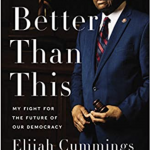01/25/2021
Editor’s Introduction
[1] “Come now, let us reason together, says the Lord: though your sins are like scarlet, they shall be white as snow; though they are red like crimson, they shall become like wool.” (Isaiah 1:18) [2] Riots at the Capitol on Epiphany interrupted Congress as it was beginning to certify a democratic election. The riots […]
Luther, Bonhoeffer, Black Lives Matter, and the Role of the Church1
In response to the Black Lives Matter movement, many churches condemned White supremacy and racist violence. Racism is not limited to White supremacy and may be categorized as either motivational, arising from racial animus, or situational, arising from the conditions in which a racial minority finds itself, with a feedback loop whereby one type of racism encourages the other. These two types of racism both require both pastoral and prophetic responses from the church. An appropriate prophetic response can be modeled in the Lutheran tradition
Overcoming ELCA Racism with Authentic Diversity
Our nation and perhaps the wider world have arrived at a Kairos moment. The groundswell of support for “Black Lives Matter” may propel our society across the threshold to a new era of equality, justice, and multi-racial community. ELCA leadership has begun to take its own action. However, our strategy must include reversing the center of focus from the white axis.
Racial Mercy
A different way of thinking about racial justice is to work toward racial mercy. Before the difference between justice and mercy is explained, there must be an agreed upon standard that is used to discern the worth of what will be suggested. This is, after all, a theological discussion, for it is about the difference between God’s Law and God’s Promise in Jesus.
Pursuing a More Diverse Church: A report and two reflections
Amy Parry, Jacqueline Robinson-Hunsicker
This article explains the process one ELCA congregation is pursuing in order to become more welcoming to all the neighbors in their community. Reflections by the leaders of the process follow.
Church as Counter-Image to Brutality
Stunning images and stories of police brutality have rocked the United States in recent months. These images and stories—of George Floyd, Breonna Taylor, Ahmaud Arbery and so many others—have moved the American people profoundly, but in different directions. What can the church do or say that might be meaningful in this moment? This essay argues that the church must realize its call to be a counter-image to human brutality. This essay draws especially upon Martin Luther, but with the intention of connecting Luther to a broader ecumenical tradition.

Racism, Justice, and Mercy: For Congregational Discussion
[1] One of the hardest things for congregations to do is to talk about race. It is the hope of JLE that the following ideas for discussions or study sessions based on the articles in this issue can provide a helpful direction. [2] Ted Peters and Timothy Hoyer both wrote articles that claim that the […]

Tributes to Dr. Cheryl Angela Stewart Pero
H. Paul Santmire, Beverly Wallace
Rev. Dr. Cheryl Stewart Pero, the second Black Lutheran woman ordained in the Lutheran Church in America, the first Black woman in the ELCA to receive a doctorate in New Testament studies, and a leading scholar, pastor, and community builder, died on October 28th, 2020. For a woman who encouraged and empowered so many others, JLE presents two tributes in her honor.

Review: We’re Better Than This, by Elijah Cummings (with Jim Dale)
“Senate minority leader Chuck Schumer said, ‘His authority came not from the office he held, nor from the timbre of his voice. It came from the moral force of his life.” (page 282) [1] This posthumously published autobiography invites its reader to experience the moral force of Elijah Cummings’ life and be inspired by his […]
Review: The Work of Faith: Divine Grace and Human Agency in Martin Luther’s Preaching by Justin Nickel
[1] Followers of Luther began debating relationships between faith, ethics, and justification during Luther’s lifetime. Heirs of Luther’s theological vision have never ceased to debate them. Some Lutherans believe that ethical prescriptions beyond freely “serving one’s neighbor” out of a response to the Gospel, constitute works righteousness, leaving believers anxiously wondering if they have done […]
Review: Healing All Creation: Genesis, The Gospel of Mark, and the Story of the Universe by Joan Connell and Adam Bartholomew
[1] This book breaks no new ground and has little to offer cognoscenti. But this is an observation, not a criticism. The authors, a biblical scholar and a religious journalist, aim for a general audience made up of millennials and others who are comfortable with evolution and distance from Christian faith because of its perceived […]

